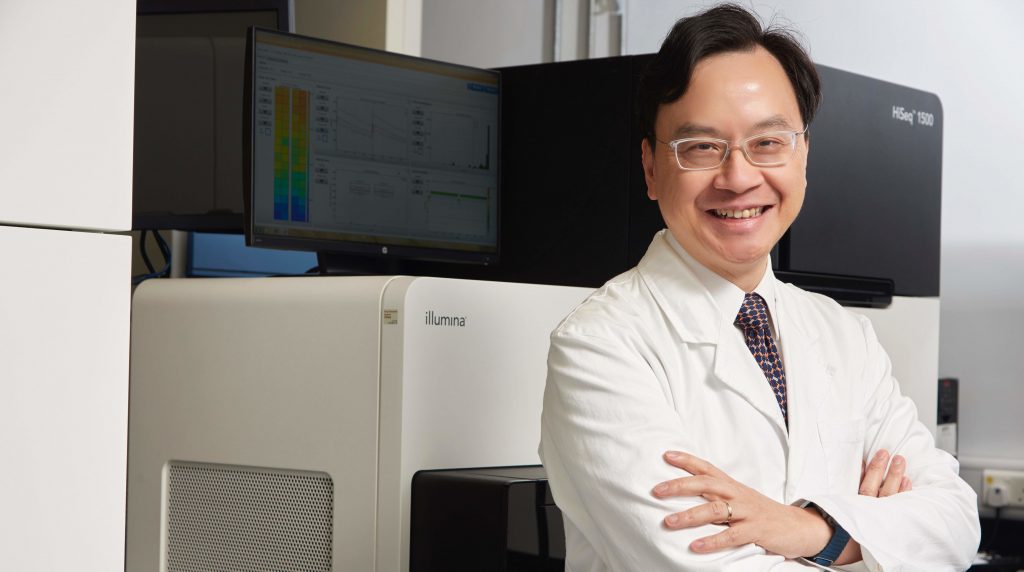
‘Oscars of Science’ for Prenatal Testing

Professor Dennis Lo discovers that fetal DNA is present in maternal blood and can be used for the prenatal testing of a variety of genetic diseases.
Professor Dennis Yuk Ming Lo from the Faculty of Medicine at The Chinese University of Hong Kong (CU Medicine) was announced as a winner of The 2021 Breakthrough Prize in Life Sciences for discovering that fetal DNA is present in maternal blood and can be used for the prenatal testing of Down syndrome and a variety of genetic diseases. The Breakthrough Prize, renowned as the ‘Oscars of Science’, aims to honour paradigm shifting research in the categories of Fundamental Physics, Life Sciences and Mathematics and was created and funded by founders of a number of leading enterprises in the global technology sector in 2012. Each laureate receives US$3 million in prize money, which is the most generous science award to date and attracts considerable attention in the global scientific community.
Over Seven Million Women in 90 countries Benefited from the Prenatal Testing Every Year
Known as ‘the Father of Non-invasive Prenatal Testing’, Professor Dennis Lo reported the presence of cell-free fetal DNA in maternal plasma in 1997. He and his colleagues have been instrumental in making non-invasive DNA-based prenatal testing a clinical reality. The non-invasive prenatal test for Down syndrome developed by the team has been widely regarded as a significant breakthrough in the global scientific community. The test has been widely adopted in over 90 countries and used by more than seven million of pregnant women every year.
With the use of massively parallel sequencing and the development of novel bioinformatics strategies, Professor Lo’s group succeeded in deciphering a fetal genome through the analysis of traces of fragmented DNA floating in the blood of a pregnant woman. This scientific achievement lays the foundation for developing non-invasive prenatal diagnostic tests for multiple genetic diseases. In recent years, he and his team have successfully developed a non-invasive test for cancer detection based on similar scientific principles.
Inspiring the Next Generation of Scientists
The Breakthrough Prize is open for public nominations and a number of recipients of this prize also received the Nobel Prize. Professor Lo felt most honoured to receive this ‘Oscar of Science’ and said, ‘I am sincerely grateful to the Committee for their recognition of our team’s effort. I couldn’t have done it without my team. I would also like to express my heartfelt gratitude to my family, mentors, collaborators and friends for their inspiration, support and care throughout my journey in science. It is most rewarding to see my scientific works being translated into clinical applications, widely used around the world and benefiting lots of families. This recognition has highlighted that paradigm shift in medical practice that has resulted from plasma DNA testing. I hope more and more young talents will be joining us in the pursuit of innovation and technology. Together we strive to make a positive impact and make a difference to the world.’
In recognition of his work, Professor Lo has received numerous international honours and awards, including the King Faisal International Prize in 2014, the Future Science Prize in 2016, and the Fudan-Zhongzhi Science Award in 2019.
Read more: